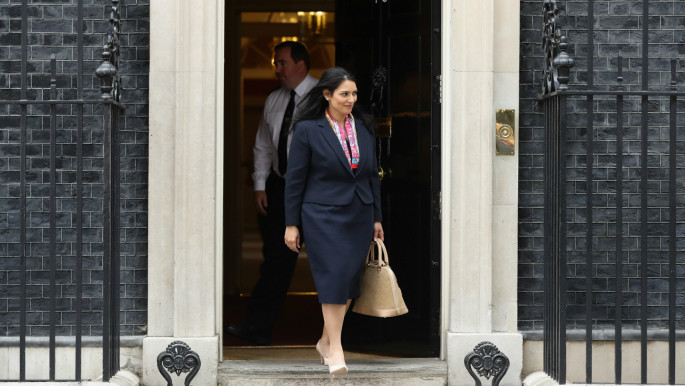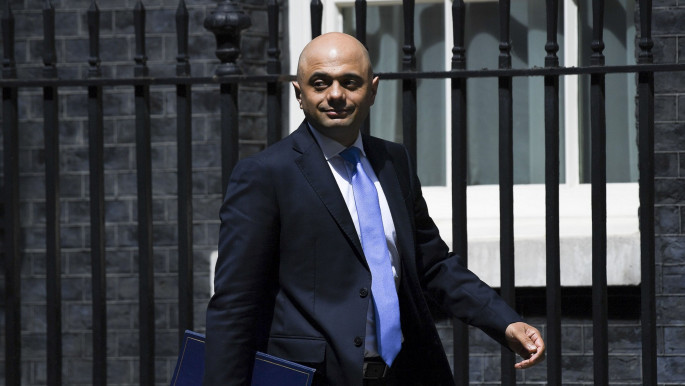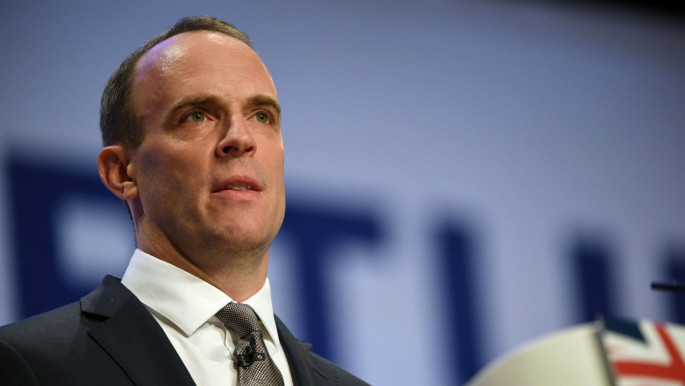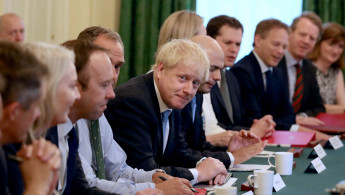Boris Johnson appoints minister sacked for 'undisclosed Israel government meetings' to new UK cabinet
The UK's new Prime Minister Boris Johnson appointed a slew of controversial figures to his cabinet, including the disgraced former International Development Secretary Priti Patel who was forced to resign over secret meetings with Israeli ministers.
The former London mayor took office Wednesday and swept out more than half the ministers who served Theresa May in her last months, replacing them with Brexiteers and rightwingers.
He chaired his first cabinet meeting Thursday as he tries to unite the deeply polarised nation in a last big push out of the EU.
Johnson delivered a characteristically optimistic speech Wednesday in which he vowed to steer the UK "out of the EU on October 31 - no ifs or buts".
It is a big promise that threatens to backfire and spell a premature end to Johnson's lifelong dream if he fails to deliver.
Johnson appointed former Deutsche Bank trader Sajid Javid as finance minister and Brexit hardliner Dominic Raab as foreign secretary. He named Jacob Rees-Mogg, leader of an arch-Brexiteer faction of Conservatives, as leader of parliament's lower House of Commons.
Johnson installed other loyalists in place of cabinet members who backed May's efforts to ram through an unpopular European divorce deal.
Gavin Williamson took the role of education secretary just two months after being sacked over the Huawei leak. Patel, a fierce Brexiteer, was named as interior minister.
One of the most significant appointments came much earlier in the day when Johnson had named as a top adviser Dominic Cummings, a combative character who helped lead the victorious "Vote Leave" campaign in 2016.
 |
Interior Minister: Priti Patel
Johnson appointed Patel as home secretary amid concerns over her hard-right record and recent resignation.
Patel was nearly sacked by Theresa May after it emerged that she met with at least 12 prominent Israeli officials, including Prime Minister Binyamin Netanyahu, while on holiday in Israel without telling the foreign office or the prime minister.
Patel, born to Gujarati parents who fled Uganda fifty years ago, had suggested that part of the UK's foreign aid budget should go towards the Israeli army, including to support operations in occupied territory, following her trip.
Patel has long been critical of funding to the Palestinian Authority, and in October 2016 as development secretary ordered a review of funding procedures and froze nearly a third of Britain's budget to the PA.
In her new role, Patel will be responsible for immigration, crime and policing, counter-terrorism and drugs policy. The hardline Essex MP has voted for a stricter asylum system and stronger enforcement of immigration rules and backed May’s hostile environment policies.
"Priti Patel is a politician with a consistent record of voting against basic human rights protections. For her to be put in charge of the Home Office is extremely concerning," Clare Collier, advocacy director at the human rights group Liberty, told the Guardian.
 |
Finance Minister: Sajid Javid
Johnson's first cabinet appointment was Sajid Javid, the son of Pakistani immigrants, who has been moved from the interior ministry to become finance minister.
He replaces Philip Hammond, who quit hours earlier after repeatedly condemning Johnson's "no deal" threats and warning of the dire economic consequences if they are enacted.
A former City of London banker born into a working class Muslim family, Javid is considered a rising star within the Conservative party. He ran against Johnson in the leadership contest but supported him once eliminated.
 |
Foreign Secretary: Dominic Raab
Ardent eurosceptic Raab, 45, is a former Brexit secretary who last year resigned from that role in opposition to the divorce deal struck with Brussels.
Another initial contender to replace May, Raab will also now serve as first secretary of state - which means he will be deputising for Johnson when he is away.
Leader of the House of Commons: Jacob Rees-Mogg
Leader of the ultra-Brexiteer European Research Group (ERG) faction of the Conservative Party, whose vociferous opposition to May's deal largely brought about her demise, Rees-Mogg has never served in cabinet before. He will now take up the position of Leader of the House of Commons.
He is credited with helping to win over many eurosceptic MPs to Johnson's team ahead of the recent leadership contest and has been rewarded with a key parliamentary role in trying to deliver Brexit by 31 October.
Education Secretary: Gavin Williamson
Williamson returns to government as Education Secretary just months after he was fired as defence secretary for allegedly leaking sensitive information to the media about Chinese telecom giant Huawei's possible role in 5G technology in Britain.
Defence Minister: Ben Wallace
Elevated after serving as security minister since 2016, Wallace has now been appointed Defence Minister.
He previously served in the military as a former officer with the Scots Guards.
Follow us on Twitter: @The_NewArab





 Follow the Middle East's top stories in English at The New Arab on Google News
Follow the Middle East's top stories in English at The New Arab on Google News


